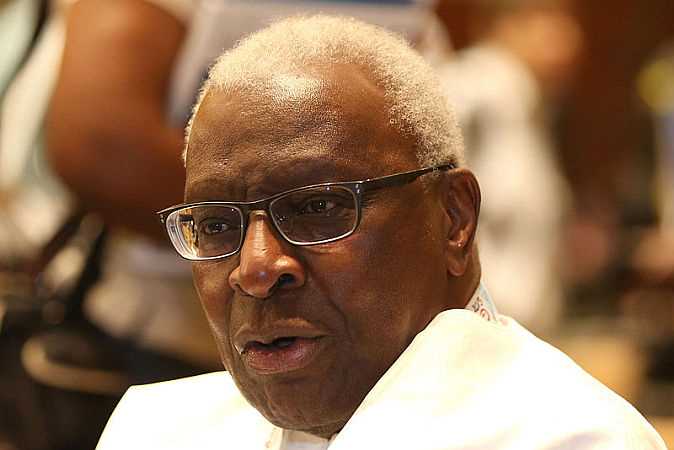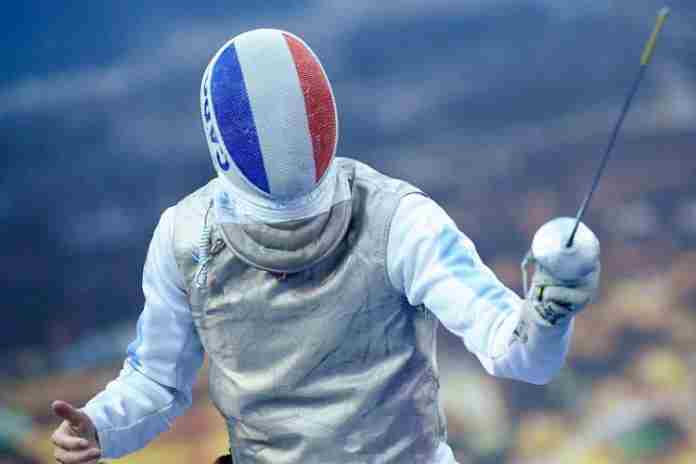 If you thought 2018 was a rough year for the Olympic Movement, in board rooms, courtrooms and the halls of the U.S. Congress, get your seat belts fastened for an even rockier ride in 2019.
If you thought 2018 was a rough year for the Olympic Movement, in board rooms, courtrooms and the halls of the U.S. Congress, get your seat belts fastened for an even rockier ride in 2019.
At the start of the year, there are already more than a handful of issues set to explode (or implode, depending on your point of view); let’s just look at seven:
7. Will the 2026 Olympic Winter Games find a host?
The “race” to host the 2026 Olympic Winter Games has thinned to a dual meet between Stockholm (SWE) and Milan and Cortina d’Ampezzo (ITA). But it’s not even sure that either or both of these bidders will still be in the running when the selection is supposed to be made in June in Lausanne (SUI).
The outstanding feature of the 2026 bid process has been cities dropping out. Graz (AUT) exited due to lack of governmental support; Erzurum (TUR) was dropped by the International Olympic Committee because of the lack of infrastructure; Sapporo (JPN) prefers to bid for 2030; Sion (SUI) and Calgary (CAN) had their bids ended by referenda, in which the public preferred not to bid.
From seven who started, the two remaining both have funding issues. Stockholm’s bid has very limited governmental support, both locally and at the national level; the Swedish national government is in flux after a hotly-contested election last fall and without a working coalition government.
Milan and Cortina d’Ampezzo – host of the 1956 Winter Games – also have no national government support in Italy, but have put forward the regional governments of Lombardy and Veneto as financial guarantors instead.
What if the financial guarantees cannot be provided? We’ll know more soon as the bid documents from both contestants are due by this Friday, 11 January … although the IOC is said to be “flexible.” Visits to the two bidders are due in March and April.
Somewhere in the background is Salt Lake City, Utah, host in 2002, which has been designated by the United States Olympic Committee as a bid city for a “future” Winter Games. In a pinch, the IOC could ask for a bid from Salt Lake City, but the Los Angeles 2028 folks would have to be convinced it would not injure their sponsorship and suppliership programs first.
6. Will boxing and weightlifting stay on the Olympic program?
The IOC is angry with the international federation for boxing, known as AIBA, for problems in governance, refereeing and judging, and its financial affairs. The federation’s former head, C.K. Wu (TPE), left in a storm of controversy over loans and debt, and then AIBA elected Ukrainian businessman Gafur Rakhimov, accused by the U.S. Justice Department of having criminal ties to the drug underworld!
So the IOC has formed a working group to look into AIBA’s affairs and report back with recommendations on what to do with the federation. It has threatened to remove boxing from the 2020 Olympic program in Tokyo, and told the Tokyo organizers to freeze their planning for the sport. But then, the IOC’s statement also assured boxers that their Olympic aspirations will not be harmed. Huh?
In the meantime, the International Weightlifting Federation has been on the hot seat since its athletes turned up dozens of positive drug tests from the 2008 and 2012 Games during the IO’s re-testing of samples. The threat against the IWF is that it and the sport will be removed from the Paris 2024 program.
While the IWF has made progress against doping – which the IOC has noted – weightlifting’s status for 2024 is not yet assured. A complete review of the sports program for Paris is due this year and weightlifting hopes to stay in.
The next actions will likely come at the IOC’s first Executive Board meeting of 2019, from 26-28 March, in Lausanne.
5. IOC and IAAF corruption: will Diack ever face trial?
This issue was supposed to have been resolved in 2018, but French authorities have still not convened a trial of former IAAF President (and IOC member) Lamine Diack of Senegal.
Diack was the head of the IAAF from 1999-2015, but was arrested by the French in 2015 on allegations of corruption, including taking bribes in order to quash doping positives by Russian athletes and arranging bribes for IOC members to vote for Rio de Janeiro (BRA) to host the 2016 Olympic Games, and much more.
He remains under house arrest in France, but a trial date has not yet been set. His son, Papa Massata Diack, is also wanted by the French prosecutors, but he remains in Senegal, which refuses to allow his extradition.
Last October, IOC President Thomas Bach (GER) told reporters that “We have asked Senegal already a long time ago to assist in the inquiry and we have had assurances months ago that if the French authorities want to hear Papa Massata Diack then they can come to Senegal and there he will be at the disposal of the French authorities.”
But nothing has happened as yet. This case isn’t going away and when it does come to trial, the details could be explosive. But the French better get going; Diack will turn 86 on 7 June.
4. The IAAF rules on women and testosterone
A long debate over naturally-generated, but abnormally high testosterone levels in women will come to a head in 2016, when the Court of Arbitration for Sport rules on the IAAF’s new rules restricting testosterone levels for women competing in track events from 400 m up to the mile.
Although the current process is a follow-on to a lawsuit brought against the IAAF’s 2011 rules on hyperandrogenism in 2015 by Indian sprinter Dutee Chand, the figure in the center ring in this round of cases is South African middle-distance superstar Caster Semenya, twice Olympic champion in the 800 and the Commonwealth Games gold medalist in the 800 m and 1,500 m.
Pursuant to a Court of Arbitration for Sport directive, the IAAF commissioned a scientific study which indicated that women with hyperandrogenism have a race-altering advantage in track events for 400 m-mile, and the IAAF adopted new rules to limit testosterone levels for athletes competing in those events.
Semenya has challenged the rules and the case is with the CAS. Both the IAAF and the South African Athletics Federation – pursuing the case on Semenya’s behalf – have agreed to be bound by the decision of the Court.
No matter how this turns out, a lot of people are going to be upset.
3. Russia and doping and WADA’s 2019 elections
The story of Russia and its state-run doping program from 2011-15 is not even close to being over. The Russian National Olympic Committee was suspended by the IOC – more or less – through the 2018 Winter Games, but reinstated days after the Closing Ceremony.
Then the World Anti-Doping Agency controversially reinstated Russia last September – with conditions – which set off a civil war inside the anti-doping community. The split between the hard-liners, such as WADA Vice President (and Norwegian minister) Linda Helleland, and those who want Russia excused, like IOC President Bach, is real and getting increasingly bitter.
The Russians are playing with WADA, pushing past its 31 December deadline to turn over the Moscow Lab data it wants, and then inviting them back this week. Now, if WADA gets the information it wants, it’s on the spot: punish Russia for missing the deadline, or letting them pass because they have it.
Later in the year, the WADA reinstatement conditions include access to the samples still stored in the Moscow Lab, to be removed for re-testing outside of Russia by the end of June. Who knows what will come of that?
And in November, WADA will hold elections for its new President, with Helleland already a candidate. But she won’t be the only one, as those more favorable to Russia will also have their own slate.
Almost unbelievably, the issue of what to do about Russia has turned into a question of how WADA will move forward and what credibility it will have.
2. The Nassar scandal and USA Gymnastics
Sexual abuser Larry Nassar is in prison for the rest of his life, but his legacy continues to ripple through the U.S. Olympic Movement.
In 2018, the United States Olympic Committee demanded, and got, the resignations of the entire Board of Directors of USA Gymnastics. Multiple staff members have been fired, two chief executives were pushed out of office and a new Board was seated.
In November, USOC chief executive Sarah Hirshland filed a complaint, the first step in a process to revoke the standing of USA Gymnastics as the National Governing Body for the sport in the United States. The USA Gymnastics Board indicated its willingness to fight the matter and so, in 2019, a review group will be assembled, hearings held and a report and recommendations will be filed with the USOC Board of Directors.
Once the USOC votes to de-certify USA Gymnastics – the politically likely outcome – the USA Gymnastics Board will appeal to the Court of Arbitration for Sport. Then there will be a decision, perhaps not until 2020?
In the meantime, USA Gymnastics will continue to run gymnastics in the U.S., including competitions and the naming of national teams. This is a long way from over.
1. The Nassar scandal and the United States Olympic Committee
While the USOC is working over USA Gymnastics, the USOC itself is taking a beating.
The detailed report into the Nassar matter by the Ropes & Gray law firm, released in early December, faulted both USA Gymnastics and the USOC for its inattention and inaction to the problem of sexual abuse in Olympic sports, including not only gymnastics, but swimming, taekwondo and others.
The U.S. Senate Subcommittee which held four hearings in 2018 on the issue referred to the U.S. Justice Department the written testimony of former USOC chief executive Scott Blackmun for possible action vis-a-vis his activities as described in the report.
In 2019, the U.S. Congress will get to decide if something should be done with or to the USOC, including possible changes to its governing statutes, known as the Ted Stevens Olympic and Amateur Sports Act (originally enacted in 1978). The Senate Subcommittee has not yet issued its report on its hearings, and could hold more. The House Subcommittee – which held one hearing in 2018 – is expected to hold more with a new, more aggressive chair in Diana DeGette (D-Colorado).
There are lawsuits aplenty against both USA Gymnastics and the USOC and these will either get settled in 2019 or carry on well into 2020 (and beyond). But the attitude of the Congress will be the main focus of 2019, as it has the power to change the USOC’s status, its powers and how it operates. Any legislation will need the assent of the White House to become law, but a bi-partisan push to reform the USOC could end up with majorities in both houses to potentially override a Presidential veto.
The entire mess has been ugly … and it appears that it’s going to stay that way, at least through much of this year.
These are hardly all the issues on the table; we haven’t even mentioned the two anti-trust suits brought against the International Aquatics Federation (FINA) in U.S. Federal Court in Northern California. But it means that 2019 is going to be a busy year off the track, courts and fields. We will do our best to keep you informed.
Rich Perelman
Editor



























